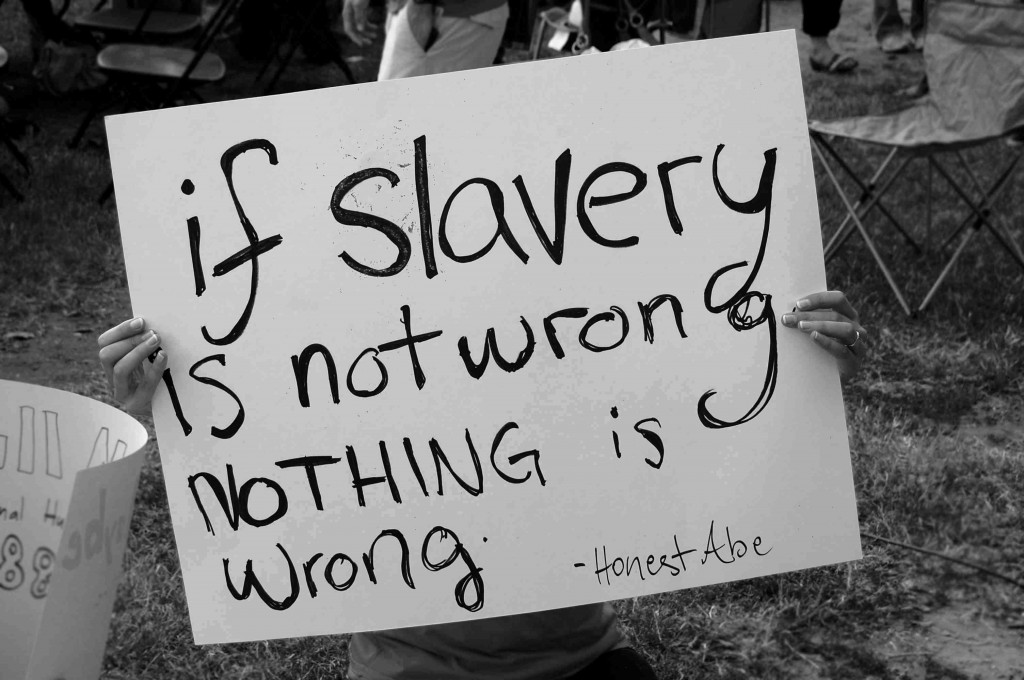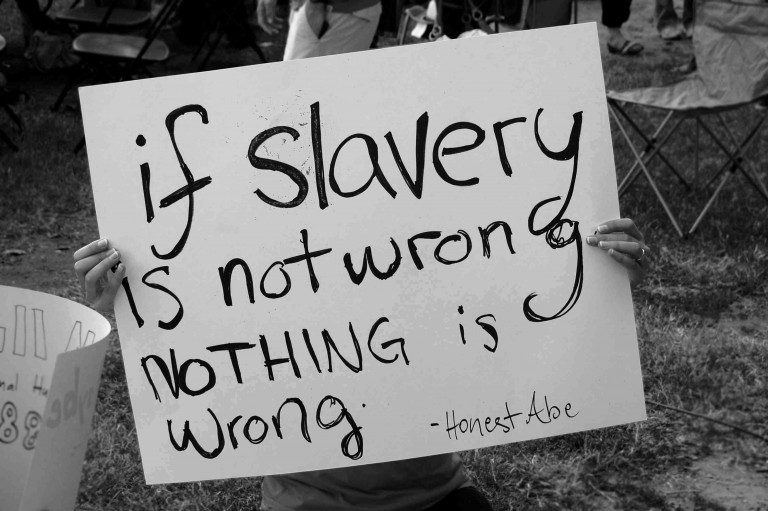
The Polaris Project, which works to combat human trafficking, stressed that trafficking happens not only during large events like the Super Bowl but is a widespread problem in cities and towns across the country. Photo courtesy the Polaris Project
The Super Bowl undoubtedly brought tons of attention and fanfare to both New York and New Jersey, but not all of it was entirely welcome, U.S. Rep. Grace Meng (D-Flushing) said.
The Queens congresswoman used the big game as an opportunity to remind constituents of the reality of sex trafficking, which she said was an unfortunate consequence that followed the festivities to the metropolitan area.
“Each year, the Super Bowl is a magnet for human sex trafficking. But it doesn’t have to stay that way,” Meng said in an email. “We can all do our part to combat this horrific practice.”
Nearly 1.2 million children worldwide are thrust into the underground world of human trafficking each year, according an advocacy group known as End Child Prostitution and Trafficking. Roughly 300,000 of those children come from the United States, the group said.
And with two of the metropolitan area’s biggest and busiest airports in the heart of Queens, lawmakers and advocates alike have recognized how the borough serves as a hub of human trafficking. The National Human Trafficking Resource Center has been tracking call data and reported an overwhelming majority of recorded activist has come from the metropolitan area.
The Federal Bureau of Investigation said Tuesday that it worked with 50 other law enforcement agencies to rescue 16 teenagers from forced prostitution during Super Bowl festivities, and authorities arrested more than 45 pimps and their associates – some of whom said they traveled to the New York metropolitan area specifically to prostitute women and children.
The teens rescued by the FBI ranged in age from 13 to 17 years old, and were found in New York, New Jersey, Connecticut, and Pennsylvania. The teens included high school students and children who had been reported missing by their families, authorities said.
“High-profile special events, which draw large crowds, have become lucrative opportunities for child prostitution criminal enterprises,” Ron Hosko, assistant director of the FBI’s Criminal Investigative Division, said in a prepared statement.
Additionally, enforcement actions resulted in the recovery of international human trafficking victims. Over the course of the operation, the FBI’s victim specialists provided 70 women and children such services as food, clothing and referrals to health care facilities, shelters and other programs.
“The sexual exploitation of children promotes the practice of inducting innocent victims into a life of prostitution,” George Venizelos, assistant director in charge of the FBI’s New York field office, said in a prepared statement. “This epidemic, which is spreading rapidly throughout the nation, not only traps children in a life of misery but helps facilitate the activities of other criminals with direct connections to human trafficking, organized crime, and illegal movement of immigrants.”
Meng plugged legislation she co-sponsored in Congress that would crack down on sex trafficking laws, particularly involving children, by getting rid of a requirement that says law enforcement has to prove the trafficker knew the victim was under 18 years of age. She also outlined how she was working with Peter Ward of the New York Hotel-Motel Trades Council to help fight the trend.
“Hotel and motel employees will be on the front lines during this year’s Super Bowl in our fight against the sex-trafficking trade, and their eyes and ears will be a vital component in our efforts to combat it,” she wrote in an op-ed with The Huffington Post. “But managers, lobby staff, in-room workers and security and restaurant personnel should not be the only ones on the alert. The public should be vigilant as well.”
A joint comprehensive survey from the Center for Court Innovation and John Jay College of Criminal Justice found that 45 percent of commercially exploited children reported being sexually abused in hotels. Both the NYPD and Federal Bureau of Investigation kept a close eye on city’s sex trafficking scene in anticipation of the big game and already nabbed nearly 200 arrests for related crimes.
Advocacy groups the Polaris Project and Clear Channel Outdoor Holdings came together in the days leading up to the Super Bowl to unveil a billboard campaign centered on human trafficking. The groups setup billboards throughout New York and New Jersey that shed light on sex trafficking with hopes of educating the public on what typically goes under-the-radar.
“Despite the enormity of the problem, most people don’t even realize that human trafficking is happening in their own back yards, and those being exploited are largely unaware that help is available,” said Bradley Myles, CEO of Polaris Project. “This form of modern slavery occurs at large sporting events, in suburban brothels, and in farms and factories across America. We want people to understand that sex and labor trafficking is a huge problem across the country that demands our attention and resources – 365 days a year.”
The campaign mapped out 26 digital billboards throughout New York and New Jersey, including some Manhattan hotspots like Times Square and Penn Plaza.
By Phil Corso


